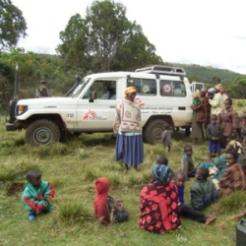Early findings from a study of responses to international humanitarian appeals suggest widespread donor fatigue and a “crisis” in the relationship between the public and NGOs.
The full report on the research, Public knowledge, reactions and moral actions in response to humanitarian issues, led by Irene Bruna Seu, a senior lecturer in psychosocial studies at Birkbeck University of London, is due to be published in September.
But an interim report, based on 18 demographically representative focus groups with 162 people and in-depth interviews, finds “clear evidence of marked and widespread public fatigue in response to humanitarian communications”.
While participants in the study responded sympathetically and empathetically to international humanitarian and development issues, the researchers found “blocks” that prevent people taking action, such as donating.
“The fatigue might be primarily due to a crisis in the relationship between the public and NGOs rather than between the public and distant sufferers,” it says.
The report finds distrust in NGOs, their use of resources and their effectiveness.
Although most participants had donated to international humanitarian causes, the report shows they felt cynicism towards the charities and aid agencies and their actions towards both the people suffering abroad and the British public.
Participants were reluctant to make a long term commitment to support some NGOs through direct debits.
One-off donations to natural disasters, particularly through telethons, were the only form of monetary donations that participants responded to positively across all focus groups.
The majority of participants believed that man-made and ongoing humanitarian problems were endemic to the country in need, particularly in the case of African countries, the report says.
Participants also thought material contributions, such as food, tents, clothing, were better to money, because it was “more likely to reach people in need”, and would not end up “in the wrong hands” or “spent on administration costs”. They also showed a preference for fundraising events, giving time and signing petitions, over regular donations support.
It says participants also tended to prioritise giving help to those closest to them, including family and local communities.
The report says some participants said they found humanitarian appeals and campaigns “excessively traumatic and counterproductive”. They expressed concern for the suffering of other people, but the majority of participants “voiced strong negative emotions towards NGOs for their perceived manipulative intentions”.
“The most widespread belief in regards to humanitarian and development issues was that ‘nothing ever changes’ and that humanitarian problems are intractable, chronic and stuck,” it says.
Read a blog by the report's authors on their findings here.










